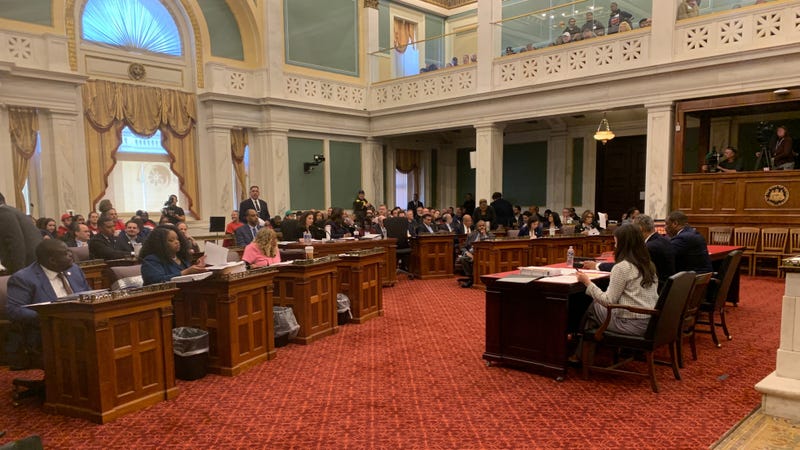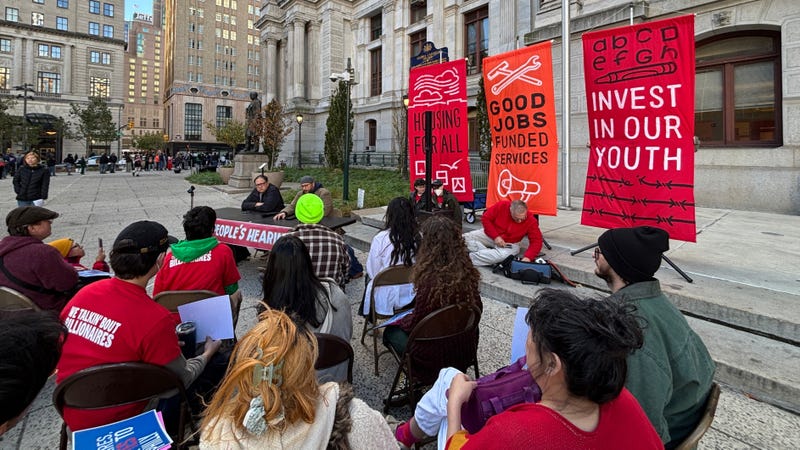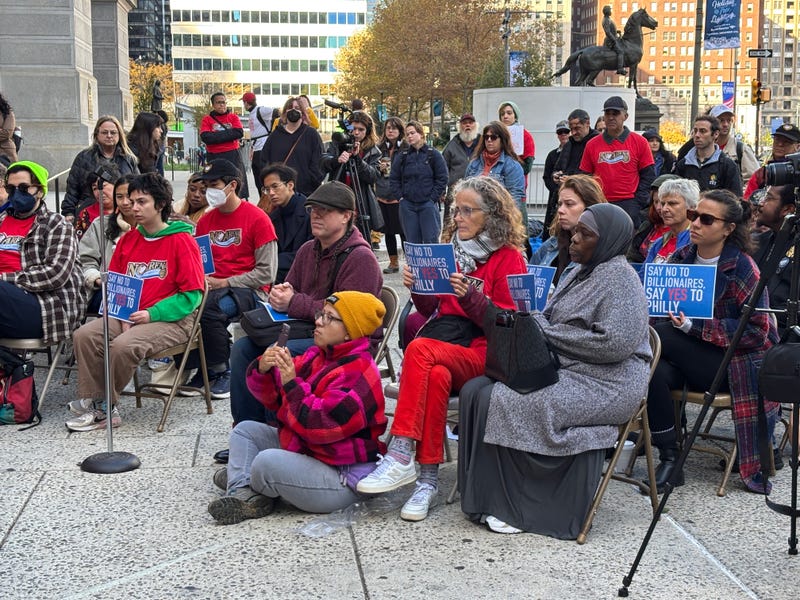
Last updated 6 p.m.
PHILADELPHIA (KYW Newsradio) — The Parker administration on Tuesday opened the first of a series of City Council hearings on the 76ers’ Center City arena proposal by presenting a litany of expected benefits. Council members responded by sharing a litany of concerns.
Normally, a new construction project would go through the Committee on Commerce and Economic Development, but for this particular set of legislation, City Council will sit as the committee of the whole, with all 17 members scrutinizing the proposal.
Mayor Cherelle Parker has called her deal with the 76ers “the best sports facility agreement in [the city’s] history,” but two Council members have already announced their opposition to the project, and three others voted no on two procedural resolutions related to the arena.
It was clear on Tuesday that some Council members want more: a bigger fund to support businesses disrupted by construction; funding to SEPTA for service increases; and — perhaps the boldest ask — Councilmember Isaiah Thomas wants the owners to move their company, Harris Blitzer, into the city.
“The Sixers entity is a New Jersey-based company. If we do agree to give them an arena, I think part of the deal should be that the company itself is headquartered in Philadelphia,” Thomas said.
The mayor’s chief of staff, Tiffany Thurman, suggested Thomas ask the Sixers organization when they testify on Wednesday, but this first hearing was reserved for the administration to explain the arena deal.
Councilmember Jeffrey Young made it clear the deal is not going to sail through.
“It’s a bad deal for the city. It’s a bad deal for the overall economic viability of our city. It’s a bad deal for our communities,” said Young. “I just need to see more in it. Why should kids in North Philly not be able to play in a new space but the Sixers get a new space?”
Thurman said she’s willing to work with Council but insisted the deal is good as is.
“We came to this agreement not lightly,” said Thurman. “We came to this agreement based on a robust analysis, economic impact study. This is a package that we stand behind and that we believe in.”
Thurman emphasized no city funding would be involved, but the city will get $6 million in payments and a $50 million community benefits agreement, $700 million in tax revenue over 30 years — and an ambitious economic opportunity plan that sets goals for hiring and contracting with local minorities, women and workers with disabilities.
“We want to see — we have to see — small businesses thrive, Black and Brown businesses thrive. That’s why we didn’t rush to get to ‘yes.’ That’s why we made sure we did our homework, and that’s how we can say that this is historic and a deal that we are proud of.”
This was the first of eight hearings, scheduled through Dec. 3, which should give City Council enough time to vote on the bills before they recess on Dec. 12.
Supporters and opponents of the plan attended Tuesday and listened quietly. Several nights of hearings are open for public testimony, which is expected to be livelier.
They will hear from the 76ers organization on Wednesday.

Opponents hold ‘the people’s hearing’
Before the City Council meeting got underway, arena opponents held their own hearing outside. Organizers with the No Arena Coalition hosted what they called “the people’s hearing” on the northeast corner outside of City Hall.
Dozens of people gathered to make their case, arguing that the arena wouldn’t just be bad for Chinatown but bad for the city. Seth Anderson-Oberman, head of Reclaim Philadelphia, said the arena project should not be a priority.

“This is not something that people have demanded. This is something that’s being forced down our throats by billionaires when we have other priorities in the city,” he said, like fixing schools and creating affordable housing.
“We need to fund our schools. We need to invest in our communities. We need to invest in housing. [The arena] will not create long-term sustainable jobs for Philadelphians.”
TJ Lepera, political director of IBEW Local 98, argued the good-paying jobs will be there. Building trades workers are all for the project. Union officials said they understand opponents’ concerns, but they believe the project’s economic boost will ultimately benefit the community.
“We’re construction workers and we maintain buildings afterward. So we’re here supporting building a $1.5 billion arena on Market Street and redeveloping Market Street all the way to the river,” said Lepera.
